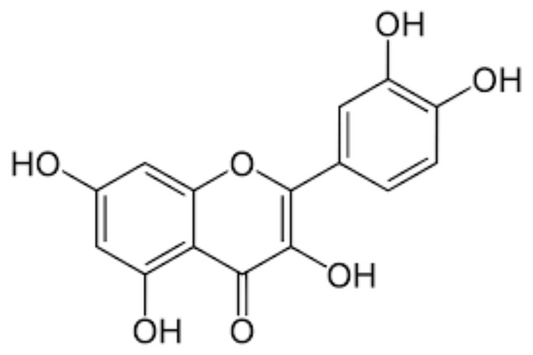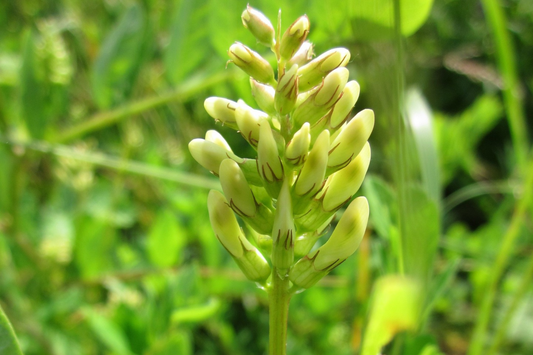Research Consensus: Broadly studied with solid evidence supporting its multiple health benefits.
Benefit Tips
Green tea, derived from the leaves of the Camellia sinensis plant, has been consumed for centuries due to its range of health benefits. It's rich in polyphenols, particularly catechins, with the most abundant being epigallocatechin gallate (EGCG).
- Consuming more than 5 cups of green tea daily has been associated with a 26% lower risk of death from heart attack or stroke.
- Weight Loss and Metabolism: Green tea can boost metabolic rate and fat burning. In some studies, green tea extract was shown to increase metabolism by 4-5%. Another study suggested that it can increase fat burning by up to 17%.
- Cardiovascular Health: Consuming green tea is associated with a reduced risk of cardiovascular disease. One large review demonstrated that individuals who drank the most green tea had a 31% reduction in the risk of developing heart disease.
- Cognitive Function: There are indications that green tea can enhance brain function. Some studies showed up to a 14% improvement in cognitive tests among those who consumed green tea or its extract.
- Antioxidant Properties: The catechins in green tea have potent antioxidant effects. These antioxidants can neutralize harmful free radicals, reducing oxidative stress. Specific percentage improvements can vary but expect notable increases in plasma antioxidant capacity after consumption.
- Cancer Risk: There's evidence suggesting that green tea can reduce the risk of certain cancers. For instance, women who drank the most green tea had a 22% lower risk of developing breast cancer, one of the most common cancers in women.
- Oral Health: The catechins in green tea can kill bacteria and inhibit viruses, leading to improved dental health and a lower risk of infections. In certain studies, green tea consumption was associated with a 32% lower risk of experiencing tooth loss.
- Type 2 Diabetes: Green tea might reduce the risk of developing type 2 diabetes. In one study, participants who consumed the most green tea had a 42% lower risk of developing type 2 diabetes.
- Liver Function: Green tea has been associated with reduced risk of liver diseases. Regular consumption has been linked to a 20% lower risk of developing liver cirrhosis.
- Longevity and Mortality: Drinking green tea may be associated with a longer life. In one large-scale study, individuals who drank the most green tea had a 26% lower risk of death from various causes.
- Mood Enhancement: Green tea contains L-theanine, an amino acid known to have a calming effect and can work synergistically with caffeine. Some studies indicate a 20% improvement in alertness and focus when consuming green tea, likely due to this combination.
Unlock the Fountain of Youth with green Tea: The Natural Anti-Aging Compound You've Been Searching For!
Green tea is a popular beverage that has been enjoyed for thousands of years. It is made from the leaves of the Camellia sinensis plant and is rich in polyphenols, which are compounds that have been shown to have numerous health benefits. One of the most well-known benefits of green tea is its ability to fight cancer. Studies have linked green tea consumption with a reduced risk of several types of cancer, including liver, breast, lung, prostate, and colon cancer.1-5
Green tea contains several compounds that are believed to be responsible for its anti-cancer effects, including epigallocatechin-3-gallate (EGCG).6 EGCG is a natural, powerful antioxidant that can help prevent cell damage and reduce the formation of free radicals in the body, protecting cells from damage. Free radicals are unstable molecules that can damage cells and contribute to the development of many chronic diseases, including cancer.
In addition to its anti-cancer properties, green tea is also believed to have anti-aging effects. One of the key factors in aging is inflammation, which is thought to be a major contributor to many age-related diseases, including heart disease, diabetes, and Alzheimer's disease. Green tea is rich in polyphenols, which are natural compounds that have been shown to reduce inflammation in the body.7
Research has also found that green tea may have neuroprotective effects, which could help to prevent age-related cognitive decline. One of the key compounds in green tea is the amino acid L-theanine, which has been shown to have a calming effect on the brain and promote relaxation.8 This makes green tea an ideal beverage to enjoy during periods of stress or when you need to focus on a task.
Green tea has also been found to improve brain function and memory. A study reviewed the current literature on the effects of green tea and its components, l-theanine and epigallocatechin gallate, on the human brain. The researchers selected 21 studies that met their predetermined eligibility criteria. The results of the reviewed studies showed that green tea consumption had a positive impact on psychopathological symptoms, such as reducing anxiety. It also had benefits on cognition, such as improved memory and attention. In addition, green tea consumption was found to activate working memory in functional MRI scans, indicating a positive effect on brain function. The study concluded that the beneficial effects of green tea on the brain cannot be attributed to a single component of the beverage. Rather, the combination of caffeine and l-theanine present in green tea was found to have the most impact on cognitive function.9
Another benefit of green tea is its ability to improve heart health. Studies have found that green tea consumption is associated with a reduced risk of cardiovascular disease.10 This is likely due to its ability to reduce inflammation and oxidative stress, both of which are risk factors for heart disease. In addition, green tea has been found to improve blood flow and lower blood pressure, which can help to reduce the risk of heart disease and stroke.11,12
Green tea is also a natural weight loss aid. It contains caffeine, which is a natural stimulant that can help to boost metabolism and increase fat burning. Studies have found that green tea consumption is associated with a small reduction in body weight and body mass index (BMI), as well as a decrease in waist circumference.13
Finally, green tea has been found to improve skin health. It contains catechins, which are natural compounds that have been shown to improve skin hydration and reduce the appearance of wrinkles.14,15 In addition, green tea has been found to protect the skin against UV radiation, which can help to prevent skin damage and skin cancer.16
In conclusion, green tea is a natural, healthy beverage that has numerous health benefits. It is rich in polyphenols, which have been shown to have anti-cancer and anti-inflammatory effects. It also contains caffeine and L-theanine, which can improve brain function and memory. Green tea has been found to improve heart health, aid in weight loss, and improve skin health. With all of these benefits, it's no wonder that green tea has been enjoyed for thousands of years and continues to be a popular beverage today.
References:
- Li M, Duan Y, Wang Y, Chen L, Abdelrahim ME, Yan J. The effect of Green green tea consumption on body mass index, lipoprotein, liver enzymes, and liver cancer: An updated systemic review incorporating a meta-analysis. Critical Reviews in Food Science and Nutrition. 2022 Aug 13:1-9.
- Ogunleye AA, Xue F, Michels KB. Green tea consumption and breast cancer risk or recurrence: a meta-analysis. Breast cancer research and treatment. 2010 Jan;119:477-84.
- Zijun GU, Jiang M, Wenting LU, Zheng P, Huang H, Baoqing SU. Association of lung cancer and tea-drinking habits of different subgroup populations: Meta-analysis of case-control studies and cohort studies. Iranian Journal of Public Health. 2019 Sep;48(9):1566.
- Guo Y, Zhi F, Chen P, Zhao K, Xiang H, Mao Q, Wang X, Zhang X. Green tea and the risk of prostate cancer: A systematic review and meta-analysis. Medicine. 2017 Mar;96(13).
- Sun CL, Yuan JM, Koh WP, Yu MC. Green tea, black tea and colorectal cancer risk: a meta-analysis of epidemiologic studies. Carcinogenesis. 2006 Jul 1;27(7):1301-9.
- Chen L, Zhang HY. Cancer preventive mechanisms of the green tea polyphenol (-)-epigallocatechin-3-gallate. Molecules. 2007 May 3;12(5):946-57.
- Maiti S, Nazmeen A, Medda N, Patra R, Ghosh TK. Flavonoids green tea against oxidant stress and inflammation with related human diseases. Clinical Nutrition Experimental. 2019 Apr 1;24:1-4.
- Malar DS, Prasanth MI, Brimson JM, Sharika R, Sivamaruthi BS, Chaiyasut C, Tencomnao T. Neuroprotective properties of green tea (Camellia sinensis) in Parkinson’s disease: A review. Molecules. 2020 Aug 27;25(17):3926.
- Mancini E, Beglinger C, Drewe J, Zanchi D, Lang UE, Borgwardt S. Green tea effects on cognition, mood and human brain function: A systematic review. Phytomedicine. 2017 Oct 15;34:26-37.
- Chieng D, Kistler PM. Coffee and tea on cardiovascular disease (CVD) prevention. Trends in Cardiovascular Medicine. 2022 Oct 1;32(7):399-405.
- Siregar S, Dewi R. The Effect of Green Tea on Blood Pressure Reduction among Hypertension Patients. International Journal of Nursing and Health Services (IJNHS). 2023 Feb 22;6(1):67-72.
- Din US, Sian TS, Deane CS, Smith K, Gates A, Lund JN, Williams JP, Rueda R, Pereira SL, Atherton PJ, Phillips BE. Green tea extract concurrent with an oral nutritional supplement acutely enhances muscle microvascular blood flow without altering leg glucose uptake in healthy older adults. Nutrients. 2021 Oct 29;13(11):3895.
- Hursel R, Viechtbauer W, Westerterp-Plantenga MS. The effects of green tea on weight loss and weight maintenance: a meta-analysis. International journal of obesity. 2009 Sep;33(9):956-61.
- Fukushima Y, Takahashi Y, Kishimoto Y, Taguchi C, Suzuki N, Yokoyama M, Kondo K. Consumption of polyphenols in coffee and green tea alleviates skin photoaging in healthy Japanese women. Clinical, cosmetic and investigational dermatology. 2020 Feb 10:165-72.
- Liao R, Parker T, Bellerose K, Vollmer D, Han X. A Green Tea Containing Skincare System Improves Skin Health and Beauty in Adults: An Exploratory Controlled Clinical Study. Cosmetics. 2022 Sep 12;9(5):96.
- Kansal V, Agarwal A, Harbour A, Farooqi H, Singh VK, Prasad R. Regular Intake of green tea polyphenols suppresses the development of nonmelanoma skin cancer through miR-29-mediated epigenetic modifications. Journal of Clinical Medicine. 2022 Jan 13;11(2):398.




